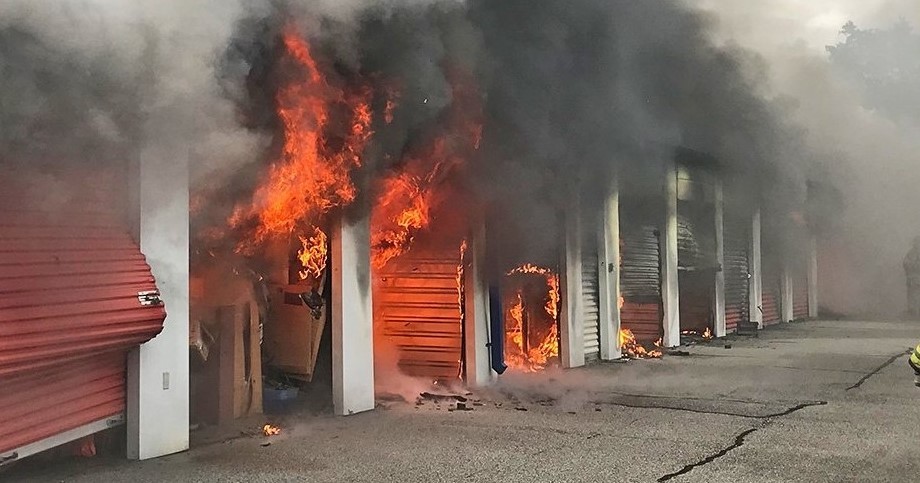
Yes….your spouse…when leasing the storage building for your boat likely did not only hold him…..she likely held THEM (owners, officers, managers, employees, etc.) HARMLESS that is. And furthermore, she likely agreed to indemnify THEM too. But don’t worry…if you are over 18 YOA, you too, have likely done the exact same thing dozens of times.
WHAT? HOW? WHEN? WHY?
The boat storage space lease likely had a signed lease/rental agreement. In that agreement, assuming it was written or reviewed by a good attorney, it likely contains a Hold Harmless and Indemnification Clause. These clauses are in just about every lease or rental agreement. Yes, just about everyone. Car rental, Boat rental, apartment lease, VRBO rental, equipment rental…..you name it…if you leased or rented something and signed a contract…you likely agreed to hold the rentor/lessor harmless for about anything that can happen to you or your property AND you likely agreed to pay the rentor/lessor for any damages caused by you to their property and/or injury to them or their employees, etc.
How bad could it be? Well, let’s just assume that the entire storage building, where you leased a storage unit burned completely down. A few days later the fire investigator determines that the fire originated in your storage unit. And, upon further investigation the expert hired by an insurance company determined that the $9.99 space heater you purchased on-line that was not a UL listed explosion proof space heater AND it was not designed for use in a boat bilge compartment ... WAS THE CAUSE OF THE FIRE!
Guess what? It is possible that you could be on the hook (pun intended) for replacement cost of the entire building. And, it will likely not be the owner of the storage building that comes knocking on your door and asking for $$$$$ to indemnify them. They could, but most of the time, the storage building’s owner has property insurance. So, the building owner’s insurance company will pay for the building and loss of profits (assuming the building owner properly insured their building). And, then here comes the “free” lawyers (not really free but they come with the insurance contract). If they think they can prove in court that you are liable for the loss of the building, due to your negligence in using a household heater in the bilge of a boat with possible gas fumes present, you had better hope you have some “free” lawyers of your own. So one lawyer is bad enough when you are in a court of law….how many lawyers do you think an insurance company may direct against you after the carrier they represent paid out over $1,000,000 to replace the building they think you (due to your negligence) caused to burn down?
But wait…it gets better! What about all those boats in the other units that burnt up too. How many of them could be a $300K brand new wakeboard boat? The insurance carrier’s lawyers for each of those damaged boats, in the entire building that you might have caused to burn down, will be knocking on your door too.
So what should you do to mitigate the risk when renting a storage building for your boat? Remember there is risk for your boat, because if the storage building burns down there goes your boat, then there is the potential bodily injury or property damage that you might have caused, as in this example.
Well first, don’t do negligent stuff that might cause bodily injury or property damage like using a household heater in an engine bilge. Properly winterize your boat and if you want an electric heater in your bilge then buy one specifcially designed for a boat's engine compartment. They cost a lot more than $9.99 but they are designed not to ignite possible gas fumes in your bilge.
Next, make sure you have insured your boat for physical damage. As in this example, your boat is covered only if you buy hull coverage for your boat and physical damage coverage on the trailer (the trailer is not automatically covered). Also, when protecting the hull you might want to get a policy that values your boat for an agreed amount (as the valuation method you select can have a significant effect how what the policy will pay, especially on partial losses). If you had personal property in your boat that burnt up, you would have to have personal property covered as well (it’s possible that if you have a homeowner’s policy in your name you may have some coverage for your personal property in the boat under that policy…but at what deductible?). It’s best to buy the coverage on the boat policy.
Next, get lots of lawyers of your own for FREE. (again, not really free as the policy cost money) but the higher the limits of liability you carry the more FREE lawyers you potentially get. Therefore, for liability coverage I would recommend you purchase high limits. Most common boat policy limits are $100K, $300K, $500K & $1MM. You will likely find that $1M is not that much more than $300K. In this example above, you would likely be glad if you had purchased $1MM limit and had another few million in coverage under an umbrella policy.
Bottom line. When it comes to risk of loss….you can avoid the risk completely (like don’t buy a boat and/or rent a storage unit in the first place). Or you can self-insure the risk (not a good idea in my opinion because boat policies are generally inexpensive for what you get). Or you can transfer the risk fully or partially to an insurance company. So, if you choose to own a boat, then find an insurance agent/carrier that will sell you a comprehensive policy at sufficient limits to mitigate your risk.